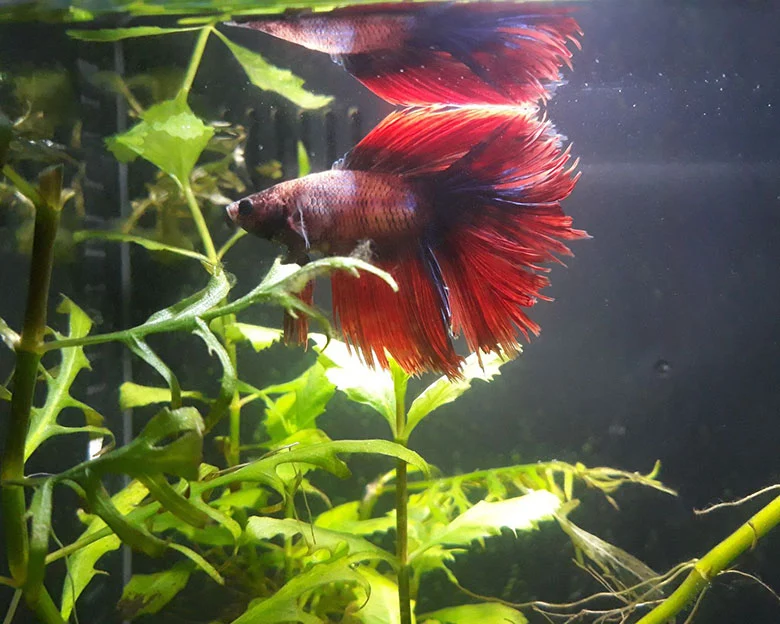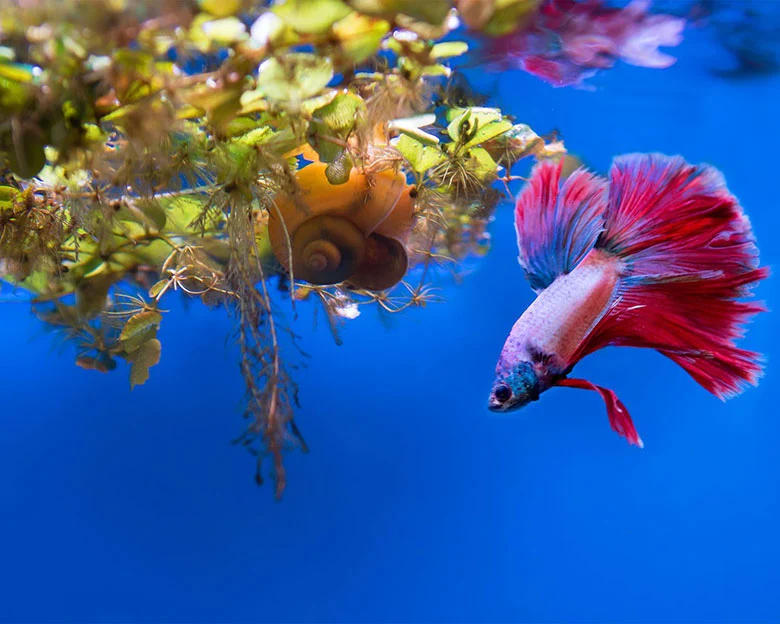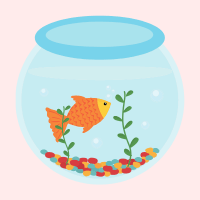Are you a Betta fish owner looking for the best food to keep your fish healthy and happy? With so many options on the market, it can be overwhelming to choose the right one.
But fear not, this guide will provide you with the tips and top picks for a nutritious and varied diet for your Betta.
Betta fish require a high-protein diet to maintain their health and vitality. However, not all fish food is created equal, and some can be harmful to your Betta’s health. That’s why it’s essential to choose the best food for your fish.
In this article, we’ll cover everything you need to know about Betta fish food, including recommended ingredients, food options, feeding tips, and tricks, as well as live food options.
So whether you’re a new Betta owner or a seasoned expert, keep reading to ensure your fish receives the best possible diet.
Key Takeaways
- Choose Betta fish food with protein-rich ingredients and avoid those with plant-based fillers.
- Offer a varied diet with multiple types of food, including flakes, pellets, freeze-dried foods, and frozen foods.
- Use feeding rings to control the amount of food and prevent overfeeding.
- Consider offering live foods like brine shrimp and daphnia to stimulate natural feeding behavior, but do not use them as a staple due to the lack of fiber.
Protein-Rich Ingredients

You should choose Betta fish foods with protein-rich ingredients like whole fish, insect larvae, krill, and shrimp, and avoid those with plant-based fillers like soy, wheat, and rice as they don’t provide the necessary nutrients.
Protein is essential for Betta fish as they are primarily insectivores and require a high-protein diet to maintain their health. Protein helps to build and repair tissues, maintain healthy skin and fins, and support the immune system.
When comparing protein levels in different Betta fish foods, look for those with animal-based proteins and avoid those with long, unidentifiable ingredients.
Flakes and pellets are popular food options, and some recommended flakes include Fluval Bug Bites Color Enhancing Flakes and Omega One Betta Buffet Flakes. Recommended pellets include New Life Spectrum Betta floating pellets and Fluval Bug Bites Betta Formula Granules.
By selecting multiple types of food to offer a varied diet, you can prevent your Betta fish from getting bored with their food and ensure they are receiving the necessary nutrients.
Recommended Food Options
Consider incorporating a variety of protein-rich flakes, pellets, freeze-dried, and frozen foods into your Betta fish’s diet to ensure a well-rounded and stimulating feeding experience.
Flakes and pellets are popular food options, with some recommended brands including Fluval Bug Bites Color Enhancing Flakes, Omega One Betta Buffet Flakes, New Life Spectrum Betta floating pellets, and Fluval Bug Bites Betta Formula Granules.
Freeze-dried foods like tubifex worms and bloodworms make good snacks, with recommended brands including Hikari Freeze-Dried Bloodworms and Hikari Bio-Pure Freeze Dried Tubifex Worms.
Frozen foods like brine shrimp, bloodworms, and daphnia are also good protein sources.
If you’re on a budget, there are also alternatives to store-bought food. Homemade food recipes can be found online and can be made with ingredients like shrimp, fish, and vegetables.
Live foods like brine shrimp, daphnia, and wingless fruit flies can also be grown at home with the use of hatcheries and cultures. However, it’s important to note that live foods should not be used as a staple due to the lack of fiber.
Overall, offering several types of food can prevent your Betta fish from getting bored and ensure they receive a well-balanced diet.
Feeding Tips and Tricks

Feeding your Betta fish is like preparing a gourmet meal – it’s important to mix things up and offer a variety of protein-rich options for a happy and healthy fish. To ensure that your Betta stays healthy and satisfied, consider the following tips and tricks:
- Feeding frequency: Bettas should be fed 2-3 times a day, with small portions to prevent overfeeding and bloating.
- Portion control: Use a feeding ring or a small scoop to measure out portions, as it can be easy to overfeed Bettas.
- Feeding schedule: Stick to a consistent feeding schedule to help regulate your Betta’s appetite and ensure optimal health.
- Betta behavior during feeding: Observe your Betta’s behavior during feeding to make sure they are eating properly and not showing signs of illness or stress.
By following these tips and tricks, you can help your Betta fish maintain a healthy and varied diet, which in turn can lead to a long and happy life. Remember to offer a mix of flakes, pellets, freeze-dried, and live foods to keep things interesting and ensure a balanced diet for your fish.
Live Food Options
Adding live food to your Betta’s diet can provide them with natural stimulation and a varied source of protein. Live foods like brine shrimp, daphnia, and wingless fruit flies are great options to supplement your Betta’s diet. However, live foods should not be used as a staple because they lack fiber, which can lead to constipation and bloating in Bettas.
If you’re interested in growing your own daphnia, it’s a relatively simple process that can save you money in the long run. Daphnia can be grown in a culture that includes spirulina powder as a food source. Wingless fruit flies are another live food option that can be purchased in a colony and are an easier option than growing daphnia. Offering a variety of live foods can prevent your Betta from getting bored with their diet and ensure they’re getting a well-rounded source of protein.
| Live Food | Pros | Cons |
|---|---|---|
| Brine Shrimp | High in protein | Can carry parasites if purchased from a store |
| Daphnia | Easy to grow at home | Lack of fiber can cause constipation in Bettas |
| Wingless Fruit Flies | Easy to purchase | Lack of fiber can cause constipation in Bettas |
Incorporating live foods into your Betta’s diet can provide them with a more natural and varied source of protein. However, it’s important to remember that live foods should not be used as a staple and should be offered in conjunction with other protein-rich foods like pellets and flakes. Growing your own daphnia or purchasing wingless fruit flies can be a great way to supplement your Betta’s diet and give them some extra stimulation and variety.
Frequently Asked Questions
How Often Should Betta Fish Be Fed?
How often should you feed your Betta fish? Feed them once or twice a day, with just enough food that they can consume in 2-3 minutes. Overfeeding can lead to health problems, so be mindful of portion sizes.
Can Betta Fish Eat Vegetables Or Fruits?
Betta fish are primarily insectivores and need a protein-rich diet. While plant-based diets may offer some benefits, they do not provide the necessary nutrients for optimal health. Feeding vegetables or fruits may cause digestive problems and should be avoided.
What Is The Ideal Water Temperature For Betta Fish During Feeding?
To ensure proper digestion, the ideal water temperature for Betta fish during feeding should be between 76-82°F. Avoid feeding in colder temperatures as it can slow down their metabolism and lead to digestive issues. Consider their feeding habits and adjust accordingly.
Is It Necessary To Soak Pellets Or Flakes Before Feeding Bettas?
Soaking pellets or flakes before feeding your bettas can benefit their digestion and prevent bloating. Pellets sink faster, but flakes can be easier to soak. Experiment and see what works best for your fish.
Can Betta Fish Eat Other Types Of Live Food Besides Brine Shrimp And Daphnia?
Expand your Betta’s palate with feeding diversity. Nutritional benefits of live foods like blackworms, mosquito larvae, and water fleas can enhance their diet. Offer varied options to stimulate natural feeding behavior.
Unlock the Potential of Your Betta Fish with Proper Nutrition!
Congratulations on taking the first step towards providing your Betta fish with the best nutrition possible. By following the tips and recommendations in this article, you can ensure that your fish receives a healthy and varied diet that promotes growth, vitality, and longevity.
As you explore the different food options available, keep in mind that the most important factor is the protein content. Look for foods that contain high-quality protein sources such as fish meal, shrimp meal, and krill. Additionally, choose foods that are specifically formulated for Betta fish to ensure that they receive all the necessary nutrients they need.
According to a survey conducted by the American Pet Products Association, Betta fish are one of the most popular types of fish kept as pets in the United States. With their vibrant colors, unique personalities, and fascinating behavior, it’s no surprise that more and more people are choosing to keep them in their homes.
However, it’s important to remember that Betta fish require specific care and nutrition to thrive. By selecting the best food options and following the feeding tips outlined in this article, you can help ensure that your Betta fish remains healthy and happy for years to come.

